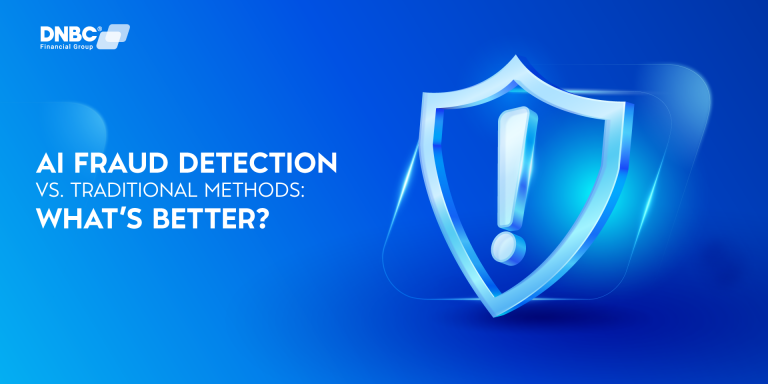In cross border payment concern, according to the Federal Trade Commission (FTC), consumers reported losses exceeding $8.8 billion due to fraudulent activities in 2022 alone, reflecting a 30% increase from the previous year.
It’s hard to state exactly how many victims lost money when transferring money in 2022, as many cases are not reported to the authorities. However, based on the data available, it is estimated that millions of people may have been victims of fraud when transferring money.
The FTC’s report is a reminder that consumers need to be cautious about protecting themselves from fraud.
Now, enhancing security and safety in money transfers has become a priority concern, protecting individuals and businesses from fraud and various risks.
We will discuss how to protect yourselves from potential risks in cross border payment solutions.
The significance of security in cross border payment
Scammers have grown progressively more adept in their tactics, taking advantage of vulnerabilities in Know Your Customer (KYC) and Know Your Business (KYB) protocols. They employ third-party payment intermediaries and leverage digital currencies to elude detection.

These fraudulent actions not only result in economic repercussions but also bring about legal and regulatory ramifications that can deeply affect the standing of financial institutions in cross border payment.
When the cross border transactions have become popular, the significance of security in international transactions cannot be overstated. Here are some of the key reasons why security is so important in international payments:
To protect against fraud
International payments are often targeted by fraudsters, who may use a variety of methods to steal money or personal information.
For example, fraudsters may create fake websites or send phishing emails that impersonate legitimate payment providers. By putting robust security protocols in place, these payment service providers can safeguard their clients from fraudulent activities.
To prevent financial loss
Fraud, cyberattacks, and other security breaches can lead to significant financial losses for both individuals and businesses.
Consider this scenario: A business might suffer financial losses if its customer database is breached, and malicious actors exploit the pilfered data for unauthorized transactions.

Through substantial investments in security measures, payment providers can play a pivotal role in shielding their customers from such monetary setbacks.
To maintain trust and confidence
Businesses need to make their international payments secure. If payment providers fail to protect their customers from fraud and other security risks, it can erode trust and confidence.
In other words, if a business experiences a security breach or a fraud attack, it can damage its reputation and lose customers. This can be costly for businesses that rely on cross border transactions.

Here are some typical examples of what can happen if you lack security and fraud prevention in cross-border payments:
A customer’s credit card information is stolen and used to make unauthorized payments in another country. The customer’s bank may reimburse them for the fraudulent charges, but the customer may still experience inconvenience and stress.
A business’s customer database is hacked and fraudsters use the stolen information to make unauthorized payments from customers’ accounts. The business may be liable for the fraudulent charges and may also lose customers’ trust.
How to protect yourselves from potential risks in money transfers?
The European Union has implemented the Strong Customer Authentication (SCA) requirement, which mandates strong authentication for all online payments. SCA is designed to reduce the risk of fraud and protect consumers.
Businesses and financial institutions have been adopting best practices for preventing and stopping fraud, such as KYC and KYB procedures, transaction monitoring tools, collaboration with regulatory bodies, and the use of machine learning and AI.
In addition to the efforts of the government and financial authorities, as a customer, you should also equip yourself with knowledge and skills to self-protect against the risks of financial loss when making money transfers or B2B cross border payments.

Here are some tips on how to protect yourself from potential risks in money transfers:
Only use reputable money transfer services
Do your research to choose a money transfer service licensed and regulated by a financial authority. You can check the website of your country’s financial regulator to see if a money transfer service is registered and regulated.
Be wary of hidden fees
Some money transfer services may charge hidden fees, such as fees for cash pickup or bank deposit. Be sure to read the fine print carefully before you make a transfer so that you know exactly what fees you will be charged.
Compare exchange rates
Different money transfer services offer different exchange rates. Make sure to assess exchange rates offered by various services before initiating your transfer to secure the most favorable deal.
Use strong authentication/biometric identification
When creating an account with a money transfer service, you should use a strong password and enable two-factor or biometric authentication. This will help to protect your account from unauthorized access.

Keep your personal information safe
Do not share your personal information, such as your password or account number, with anyone. Be wary of emails or phone calls from people claiming to be from a money transfer service.
If you are unsure about whether or not a communication is legitimate, contact the money transfer service directly.
Monitor your account activity
Regularly review your account statements for any unauthorized transactions. If you see any unauthorized transactions, report them to the money transfer service immediately.
Here are some additional tips
Be careful about sharing your personal information on social media. Fraudsters may use social media to gather information about potential victims.
Use a VPN (Virtual private network) when connecting to public Wi-Fi networks. Public Wi-Fi networks are not always secure, and fraudsters may be able to intercept your data if you use them to make a money transfer.
Introduce DNBC as a secure solution for international money transfers
DNBC Financial Group stands out as a secure and trustworthy solution for international money transfers. Our commitment to robust security measures, state-of-the-art encryption technologies, and a vigilant approach to fraud prevention ensures that your funds and personal information remain safe throughout the transfer process.
With DNBC, you can rest assured that your international money transfers are carried out with the utmost security, mitigating potential risks and offering peace of mind.
If you need to transfer money internationally, please contact DNBC for a free consultation:
DNBC Financial Group is your trusted provider in international money transfer
- Get 100% free 1-on-1 support
- 100% free account opening
- Seamless onboarding process
Or please contact DNBC
![]() Email: [email protected]
Email: [email protected]
![]() Phone Number:
Phone Number:
- +65 6572 8885 (Office)
- +1 604 227 7007 (Hotline Canada)
- +65 8442 3474 (WhatsApp)



 DNBC Team
DNBC Team






